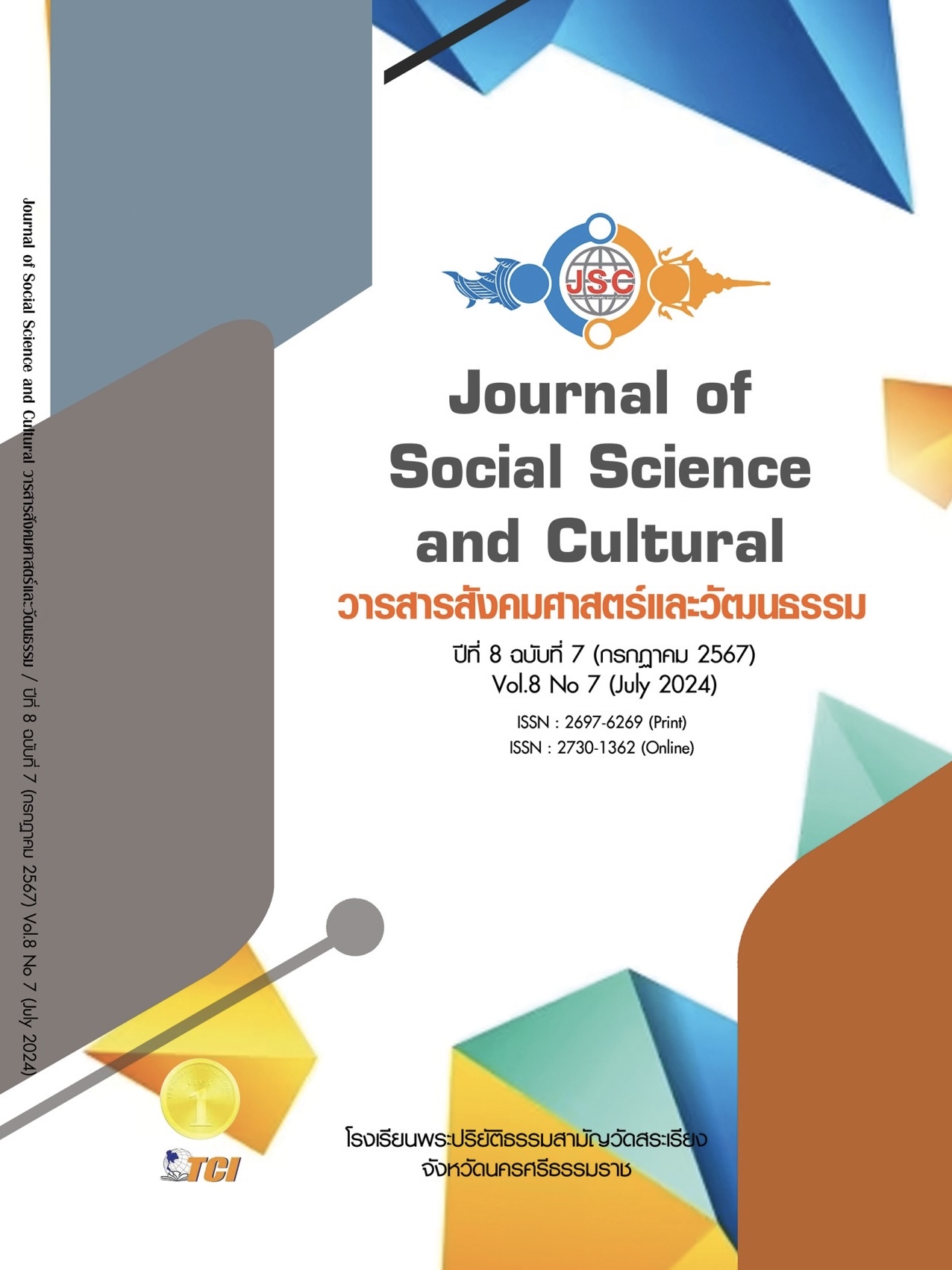THE STUDY OF DIGITAL SAFETY SKILL OF UNDERGRADUATE STUDENTS
Main Article Content
Abstract
This research article aims to study the definition and elements of digital safety skill of undergraduate students and evaluate the appropriateness of the definition and elements of digital safety skill of undergraduate students. The research is using mixed methods and it consists of qualitative research and quantitative research in term of document analysis and connoisseurship. The groups of key informants are the persons who related to information technology and digital field, the protection of online information security, and online information security and technological crimes suppression including the persons who graduated in educational technology fields and have at least five years of experience teaching undergraduate students total six persons and using purposive sampling with specific criteria. The results of the research have showed that the definition and elements of digital safety skill of undergraduate students are the definition means undergraduate students' behavior to deal with risks in the digital environment including data protection and privacy, cyberbullying prevention, and protecting themselves in risky situations in the digital environment. These are 3 elements 1) personal information and privacy data protection in the digital environment 2) cyberbullying management and 3) survival in risky situations in the digital environment. The results of the evaluation of the appropriateness of the definition and elements of the skills for digital safety skill showed that the connoisseurship found the definition and elements of digital safety skill of undergraduate students are appropriate at a high level. Especially, the cyberbullying management element that has the appropriateness at the highest level because the skill is necessary for living nowadays
Article Details
References
เกษตรชัย และหีม. (2557). พฤติกรรมการรังแกกันของนักเรียนโรงเรียนเอกชนสอนศาสนาอิสลามใน จังหวัดสงขลา. วารสารศรีนครินวิโรฒวิจัยและพัฒนา (สาขามนุษยศาสตร์และสังคมศาสตร์), 6(7), 14-29.
ไทยโพสต์. (2565). “บูลลี่” พุ่งในหมู่เด็ก พฤติกรรมที่ต้องเลี่ยง! เรียกใช้เมื่อ 17 ธันวาคม 2565 จาก https://www.thaipost.net/news-update/272428/
พนิดา สายประดิษฐ์. (2552). ผู้ใช้อินเทอร์เน็ตในประเทศไทยกับการให้บริการหลอมรวมสื่อ. เรียกใช้เมื่อ 17 ธันวาคม 2565 จาก http://www.nectec.or.th
วรัชญ์ ครุจิต. (2560). ผลการศึกษาและข้อเสนอแนะการปฏิรูปการใช้สื่อโซเชียลมีเดีย (Social Media). ใน เอกสารแนบระเบียบวาระ สภาขับเคลื่อนการปฏิรูปประเทศ วันที่ 03 กรกฎาคม 2560. กรุงเทพมหานคร: สำนักกรรมาธิการ 1 สำนักงานเลขาธิการสภาผู้แทนราษฎรปฏิบัติหน้าที่สำนักงานเลขาธิการสภาขับเคลื่อนการปฏิรูปประเทศ.
วิศิษฎ์ เกตุรัตนกุล และคณะ. (2561). บอกต่อสุขภาพดี (จริงหรือ)? ในสังคมไทยยุคปลอมปลอม. ใน การ สัมมนาทางวิชาการเรื่อง Fake News วิกฤตการสื่อสารในยุคดิจิทัล. มหาวิทยาลัยสุโขทัยธรรมาธิราช. นนทบุรี. 23-27.
สมถวิล วิจิตรวรรณา และคณะ. (2556). การวิจัยเพื่อพัฒนาการเรียนการสอน. กรุงเทพมหานคร: เจริญดี มั่นคงการพิมพ์.
สุกัญญา บูรณเดชาชัย. (2560). ไม่ชัวร์แชร์ไป...สังคมวุ่นวาย. เรียกใช้เมื่อ 17 ธันวาคม 2565 จาก http://imgs.mcot.net/images/2018/05/1525684457247.pdf
อิสริยะ ไพรีพ่ายฤทธิ์. (2560). Fake News ข่าวปลอม ปัญหาใหญ่ของโลกอินเทอร์เน็ต. เรียกใช้เมื่อ 17 ธันวาคม 2565 จาก http://www.okmd.tv/blogs/all-things-digital/fake-news-ข่าวปลอม-ปัญหาใหญ่ของโลกอินเทอร์เน็ต
Donner, J. (2010). Research approaches to mobile use in the developing world: A review of the literature. The Information Society, 24(3), 140-159.
Microsoft. (2022). Digital Safety. Retrieved November 15, 2022, from https://www.microsoft.com/ apac/digitalsafetyessentials/en-nz/
Park, Y. (2016). 8 digital life skills all children need-and a plan for teaching them. Retrieved May 26, 2022, from https://www.weforum.org/agenda/2016/09/8-digital-life-skills-all-children-need-and-a-plan-for-teaching-them/
Scott, J. (2006). Documentary Research. London: Sage.
Stahl, C. & Fritz, N. (2002). Internet safety: Adolescents’self-report. Journal of Adolescent Health, 31(1), 7-10.
Swearer, S. M. & Hymel, S. (2015). Understanding the psychology of bullying: Moving toward a social-ecological diathesis–stress model. American Psychologist, 70(4), 344-353.
Tokunaga, R. S. (2010). Following you home from school: A critical review and synthesis of research on cyberbullying victimization. Computers in Human Behavior, 26(3), 277-287.


